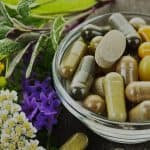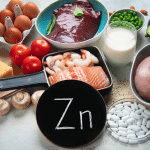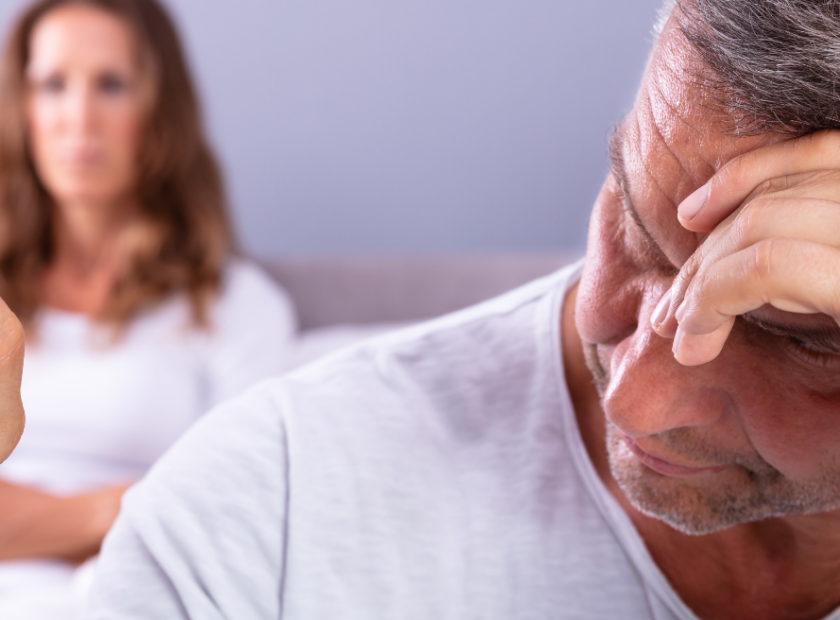No sweat! In this case, Your Blood =Your Tears. We offer a compounded solution: autologous serum eye drops. Supplementing inadequate natural tear production with artificial tears or lubricants is often inadequate. In many cases, there may not be a “quick fix” for the problem.
Compounding can offer an alternative tool in your eye doctors’ armamentarium. Eye drops made by separating liquid and cellular components of the patient’s blood, known as autologous serum eye drops, have been shown to possess many of the same biological nutrients found in natural tears. Because of this fact, autologous serum eye drops are believed to be a better tear substitute and have been proposed as treatment for dry eye. Autologous means that the donor and the recipient are the same person.
What is Dry Eye?
Dry eye is a common disorder of the tear film, which is a layer of tears covering the surface of the eye. Dry eye affects many adults older than 40 years of age. Often our patients have underlying medical issues which can cause or worsen dry eye; including diabetes, rheumatoid arthritis and thyroid disease. Others take medications which diminish tear production. Dry eye syndrome is a chronic lack of moisture in the eye. If left untreated, dry eye syndrome may weaken vision and lead to eye infections.
Common Symptoms of Dry Eye:
People with dry eye may feel discomfort in one or both eyes and have sensitivity to light. Other telltale signs include:
- A stinging, burning or scratchy sensation in your eyes.
- Stringy mucus in or around your eyes.
- Eye redness.
- A sensation of having something in your eyes.
- Difficulty wearing contact lenses.
- Difficulty with nighttime driving.
How Do I Know If I Have It?
There are clinical tests that are used by healthcare professionals to measure the amount of tears the eye produces and how fast tears leave the eye. Sometimes these clinical measures do not match the symptoms; a person can have severe dry eye with normal clinical test results, or mild dry eye showing abnormal clinical test results.
Conventional Treatments for Dry Eye Syndrome
Standard treatment is usually commercially prepared artificial tears to be instilled several times per day. In more severe forms of dry eye, gels and ointments are prescribed. Steroid eye drops or cyclosporine eye drops are other prescription options. Steroids and cyclosporine medications work on the body’s immune system and aim to decrease inflammation and increase tear production. Physical procedures are also sometimes recommended for dry eye treatment including Punctal occlusion, a painless procedure where small collagen or silicone implants are placed into the eye’s puncta or drainage canal, improve the available tears to the eyes and decrease tear drainage away from the eye. In more severe cases, sometimes the puncta are simply cauterized closed. Night-sleeping masks and moisture goggles are prescribed to decrease exposure to the air and to decrease the evaporation of the tears. Appropriate
vitamin and mineral supplements should always be part of first line therapy as well.
Autologous Serum Eye Drops: A Compounder’s Time to Shine
Conventional treatments for dry eye fail to heal the top layer of cells on the cornea, called epithelial cells. Autologous serum eye drops are manufactured from the patient’s own blood serum and plasma. This fluid contains epithelium-promoting growth factors and other essential components present in natural tears. Human serum contains immunoglobulins, vitamin A, fibronectin, and growth factors that promote epithelial health. This serum serves as a good replacement for tears.
What Does the Preparation Entail?
After we receive a prescription from your provider, autologous serum eye drops are prepared by drawing the patient’s blood into a sterile tube and allowing the blood to clot for at least 10 hours. The blood is then centrifuged or spun for 15 minutes so the serum is separated. The serum is diluted with a sterile, preservative-free solution to produce a tear substitute that is unique to the patient, again containing many important growth factors and nutrients normally found in healthy tears. Since blood and tears have an almost identical salinity and pH, there is no issue of burning or stinging upon instillation. Because they are non-preserved, the drops are stored in the freezer until you need them.
We have our very own technician to draw the patient’s blood in-house; the patient’s safety as well as convenience is at the top of our chart.
How much do they cost?
The cost for autologous serum eye drops varies by the amount of blood drawn from the patient and the number of eye bottles produced from the sample. In general, Central Drug Compounding & Wellness charges $25 per 5 milliliter bottle of drops, and the fee for the blood draw is a mere $20. A typical draw will deliver anywhere from 6 – 8 bottles, so figure on about $125.00 to $150.00 for the entire process. That should produce enough drops to last 4 – 6 months. We can also schedule our technician to draw the blood sample at the patient’s home by request.
Will my insurance cover the cost?
Insurance will probably not pay for serum eye drops any more than they pay for artificial tears. However, we will happily provide you a letter of medical necessity on your behalf if you wish to challenge the claim.
When will I know if they’re working? Everyone is different, but for those patients who experience relief using autologous serum eye drops it is usually seen within the first few weeks.
Autologous Serum Eye Drops Safety
Because the serum must be preservative-free, there is concern that there could potentially be possible bacterial growth in the samples, as well as degradation of some components over time or with improper handling. However, few adverse events have been reported with their use and studies have concluded they are safe and effective for treatment.






